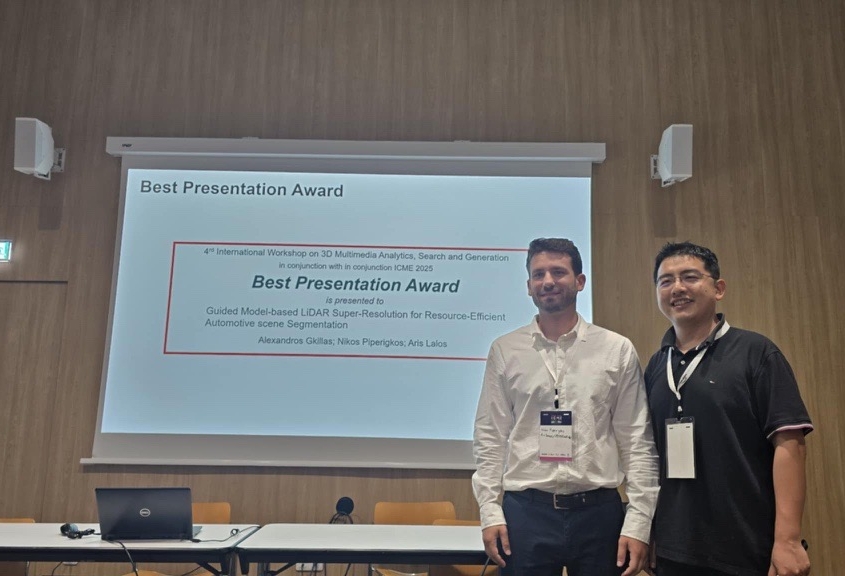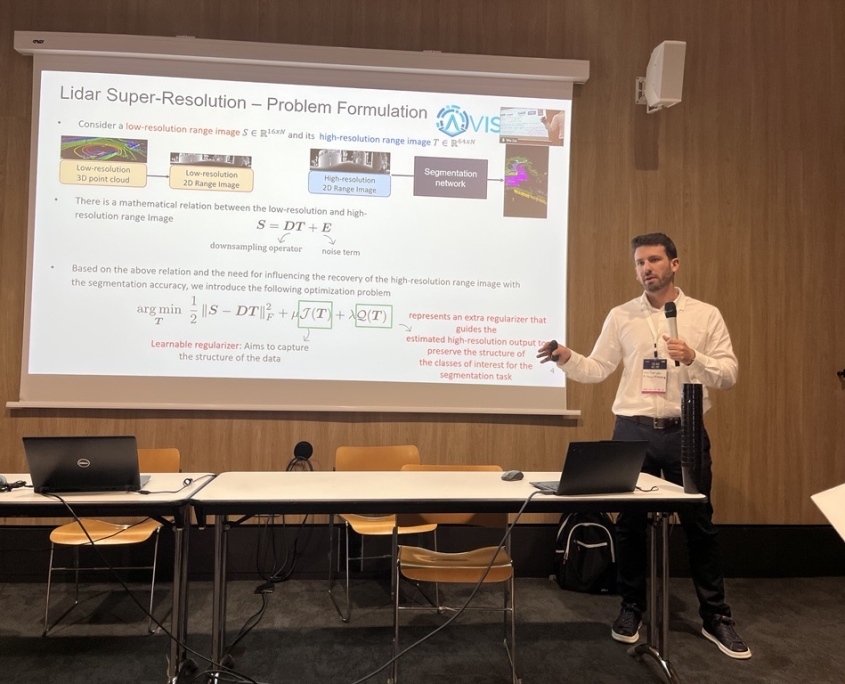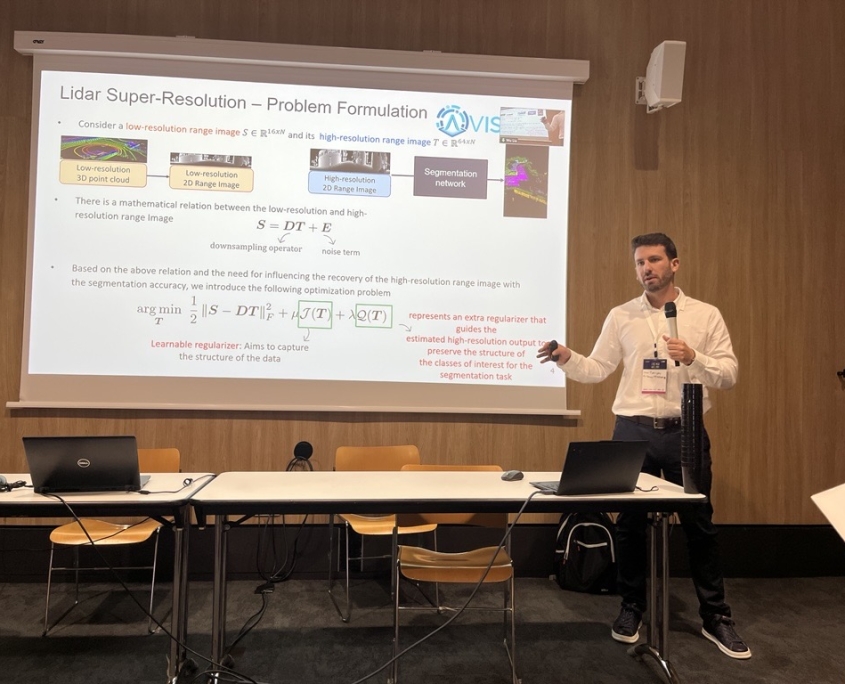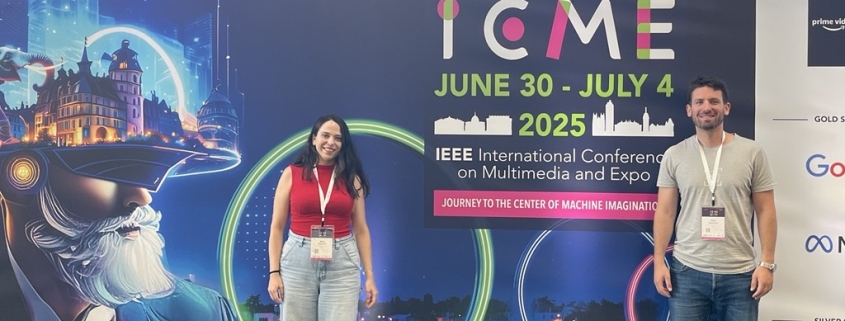Avisense.AI at IEEE ICME 2025: Showcasing Cutting-Edge Research in 3D Multimedia and LiDAR Analytics
We are proud to announce that Avisense.AI participated in the prestigious IEEE International Conference on Multimedia & Expo (ICME) 2025, held in Nantes, France, from June 29 to July 4. Our team had the honor of presenting two peer-reviewed papers at the 3D Multimedia Analytics, Search and Generation Workshop, both accepted for oral presentation a significant milestone that highlights the impact of our research in the field of autonomous systems and multimodal analytics.
Advancing Multi-Object Tracking with Graph Signal Processing
Maria Damanaki presented our work titled
“Optimizing Cooperative Multi-Object Tracking using Graph Signal Processing”,
co-authored by Nikos Piperigkos, Alexandros Gkillas, and Aris Lalos.
In this paper, we propose a novel cooperative multi-object tracking (MOT) framework for 3D LiDAR scenes. The approach formulates and solves a graph topology-aware optimization problem to intelligently fuse data from multiple vehicles. Leveraging a fully connected graph topology defined over detected bounding boxes, we apply Graph Laplacian Processing to smooth positional errors and enhance detection fusion.
This results in robust object association and improved tracking accuracy across agents. The framework was rigorously evaluated on the V2V4Real dataset, significantly outperforming baseline and state-of-the-art methods, including DMSTrack and V2V4Real’s internal baselines.
Redefining LiDAR Efficiency with Guided Super-Resolution
Nikos Piperigkos presented the second paper, titled
“Guided Model-based LiDAR Super-Resolution for Resource-Efficient Automotive Scene Segmentation”,
co-authored by Alexandros Gkillas and Aris Lalos.
This work introduces the first end-to-end framework that integrates LiDAR super-resolution (SR) with scene segmentation. By jointly optimizing both tasks during training, our method ensures that the SR network is guided semantically by the segmentation process, preserving important structural details—especially for smaller object classes.
Key innovations include a lightweight, model-based SR architecture with a novel loss function focused on regions of interest. The framework achieves segmentation performance comparable to high-resolution 64-channel LiDAR setups, but with dramatically lower computational cost and fewer parameters.
Best Presentation Award
We are especially proud to share that Nikos Piperigkos received the Best Presentation Award for his excellent delivery and impactful research contribution.
A heartfelt thank you to the ICME 2025 organizers and the vibrant research community that continues to push the boundaries of AI, multimedia processing, and autonomous systems. Events like ICME foster collaboration, innovation, and the exchange of ideas that shape the future of intelligent perception.
Stay tuned as we continue our mission at Avisense.AI to transform advanced research into scalable, real-world solutions.







